Donald Trump may be a world of chaos all by himself, but the world beyond Trump is changing in dramatic ways, often with little notice. We’d like to tell you about it and we’re keeping track of these global changes, from the incremental to the monumental, so that you don’t have to.Sign up for our weekly newsletter of the biggest news in the world delivered to your inbox every Sunday.A man killed at least 2 people and wounded 8 others in a stabbing spree in the Finnish city Turku Friday, police say. The suspect, who is now in custody, was shot in the leg when police apprehended him.Witnesses said they saw a man running through the crowd at 2 popular marketplaces near the city’s center, stabbing people.“This woman just screamed like hell and this guy was standing in front of her with a huge knife just stabbing people,” Kent Svensson told CNN. “There was blood everywhere.”Both the suspect and his alleged victims are now at a Finnish hospital receiving treatment.“We are not looking for other perpetrators at the moment, but we are looking into who might have helped him,” a National Bureau of Investigation spokesperson told the New York Times. “We cannot rule out that others might have assisted him. We cannot say for sure if he is a Finnish citizen or a foreigner yet, but we are following several leads regarding his identity.”It’s still unclear whether the attack is connected to international terrorism, police told CNN, though security has now been increased at train stations and the Helsinki-Vantaa airport. In June, Finland’s national intelligence service raised its threat level to “elevated” after becoming aware of terrorist plots.The National Bureau of Investigation did not immediately return VICE News’ request for comment.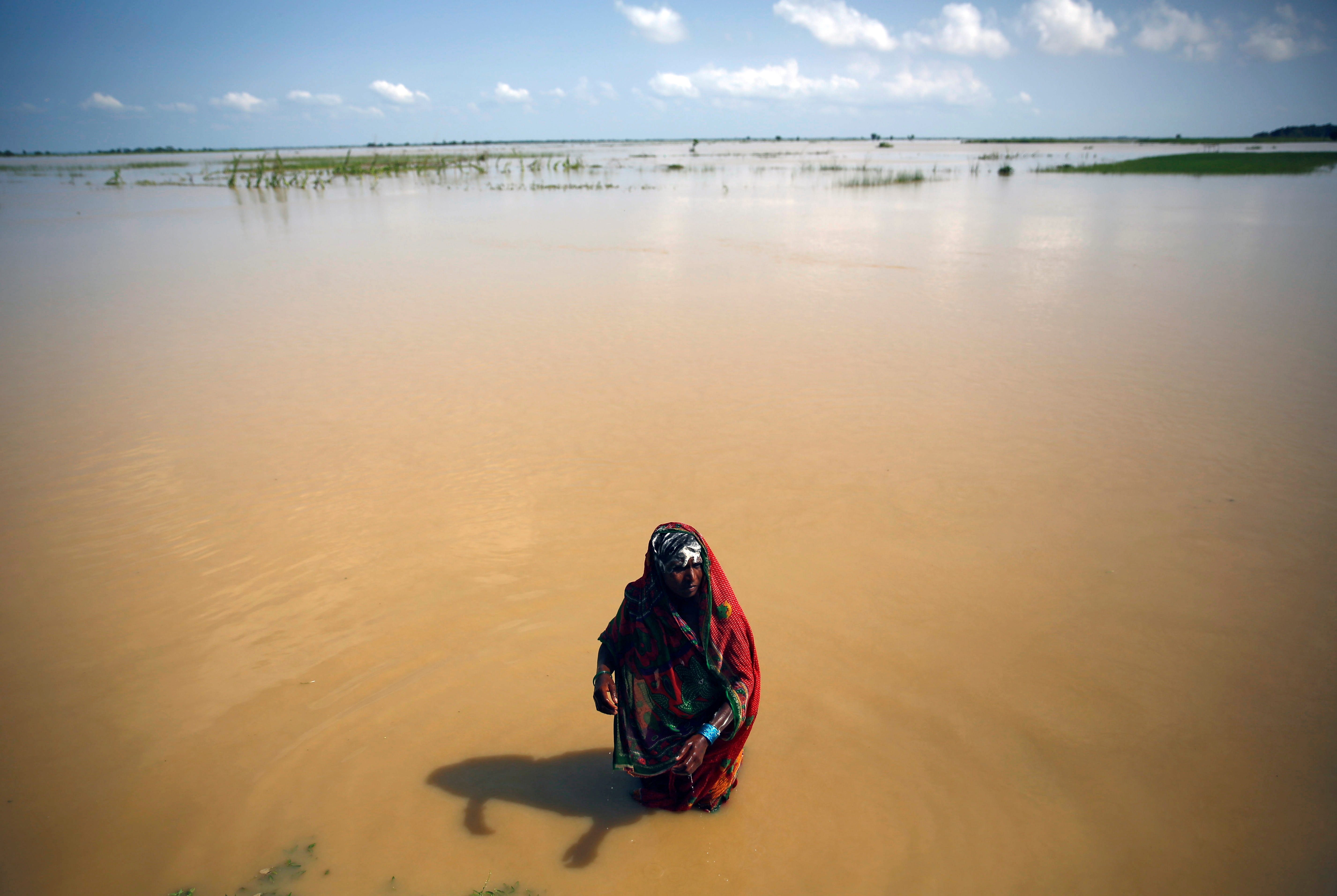 have been impacted by historic monsoon flooding in South Asia that has submerged a third of the land area in Bangladesh and Nepal, aid workers said Friday.Hundreds of people have already died in the floods, and authorities warn the death toll could rise further amid dwindling food supplies and the spread of waterborne disease.In northern India, 11 million people have been impacted by rising waters, and even more heavy rains are forecast in the coming days by the country’s meteorological service.
have been impacted by historic monsoon flooding in South Asia that has submerged a third of the land area in Bangladesh and Nepal, aid workers said Friday.Hundreds of people have already died in the floods, and authorities warn the death toll could rise further amid dwindling food supplies and the spread of waterborne disease.In northern India, 11 million people have been impacted by rising waters, and even more heavy rains are forecast in the coming days by the country’s meteorological service.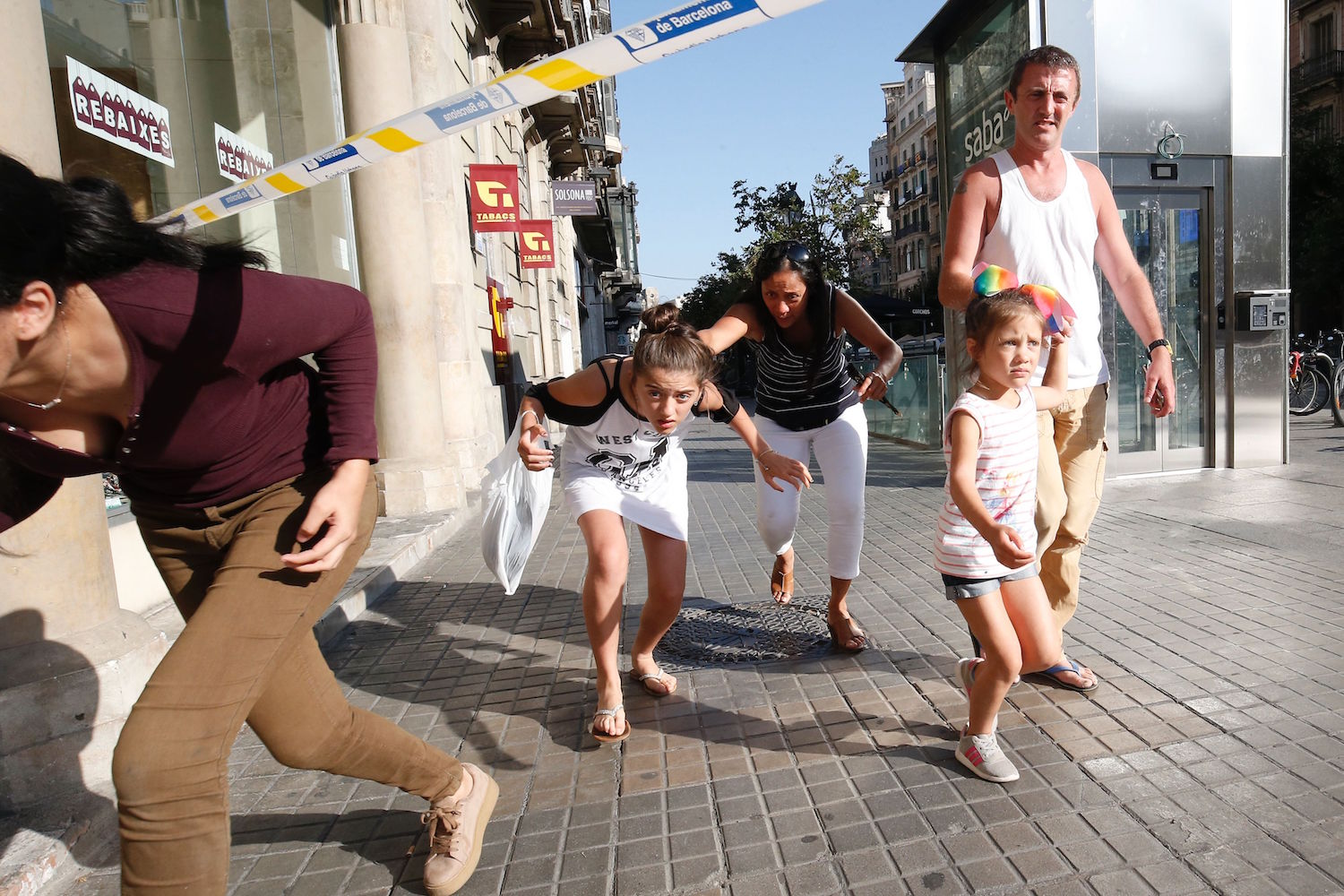 The suspected teenage driver of a white van that plowed through Barcelona’s Las Ramblas boulevard, killing at least 13 people and injuring more than 100, was among the five terrorists killed by police in the coastal town of Cambrils, Spain’s El Pais newspaper reports.Moussa Oukabir was shot dead 75 miles southwest of the Catalan capital, when authorities responding to a second van attack shot and killed four other suspected terrorists in the early hours of Friday morning.The van attack in Cambrils left one pedestrian dead before police neutralized the attackers.Catalan authorities say the two incidents are linked, and they are now hunting members of a terrorist cell operating in the region. The group was determined to “kill as many people as possible,” according to police. Police have also linked a third incident, which happened early Thursday morning, in which members of the cell are believed to have blown themselves up while preparing bombs using butane gas in the town of Alcanar, 120 miles south of Barcelona.A second van, rented at the same time as the one used in the attack and believed to be the getaway vehicle, was found 50 miles away in the town of Vic.— David GilbertRead More: What we know about the Barcelona terror attackSierra Leone held a mass funeral Thursday for the hundreds of people killed in Monday’s devastating mudslide. The government buried bodies in a cemetery set up during the country’s Ebola outbreak outside the capital Freetown.Rescue workers have recovered around 400 bodies so far. But the Red Cross told VICE News that the more than 600 people still missing should be presumed dead. Emergency responders and volunteers are racing to uncover those bodies before they decompose, potentially contaminating water sources and leading to outbreaks of disease. Persistent rain and the threat of another landslide are hampering those efforts.VICE News spent the day with one man who survived the disaster, but then returned to the site to look for his roommates.
The suspected teenage driver of a white van that plowed through Barcelona’s Las Ramblas boulevard, killing at least 13 people and injuring more than 100, was among the five terrorists killed by police in the coastal town of Cambrils, Spain’s El Pais newspaper reports.Moussa Oukabir was shot dead 75 miles southwest of the Catalan capital, when authorities responding to a second van attack shot and killed four other suspected terrorists in the early hours of Friday morning.The van attack in Cambrils left one pedestrian dead before police neutralized the attackers.Catalan authorities say the two incidents are linked, and they are now hunting members of a terrorist cell operating in the region. The group was determined to “kill as many people as possible,” according to police. Police have also linked a third incident, which happened early Thursday morning, in which members of the cell are believed to have blown themselves up while preparing bombs using butane gas in the town of Alcanar, 120 miles south of Barcelona.A second van, rented at the same time as the one used in the attack and believed to be the getaway vehicle, was found 50 miles away in the town of Vic.— David GilbertRead More: What we know about the Barcelona terror attackSierra Leone held a mass funeral Thursday for the hundreds of people killed in Monday’s devastating mudslide. The government buried bodies in a cemetery set up during the country’s Ebola outbreak outside the capital Freetown.Rescue workers have recovered around 400 bodies so far. But the Red Cross told VICE News that the more than 600 people still missing should be presumed dead. Emergency responders and volunteers are racing to uncover those bodies before they decompose, potentially contaminating water sources and leading to outbreaks of disease. Persistent rain and the threat of another landslide are hampering those efforts.VICE News spent the day with one man who survived the disaster, but then returned to the site to look for his roommates.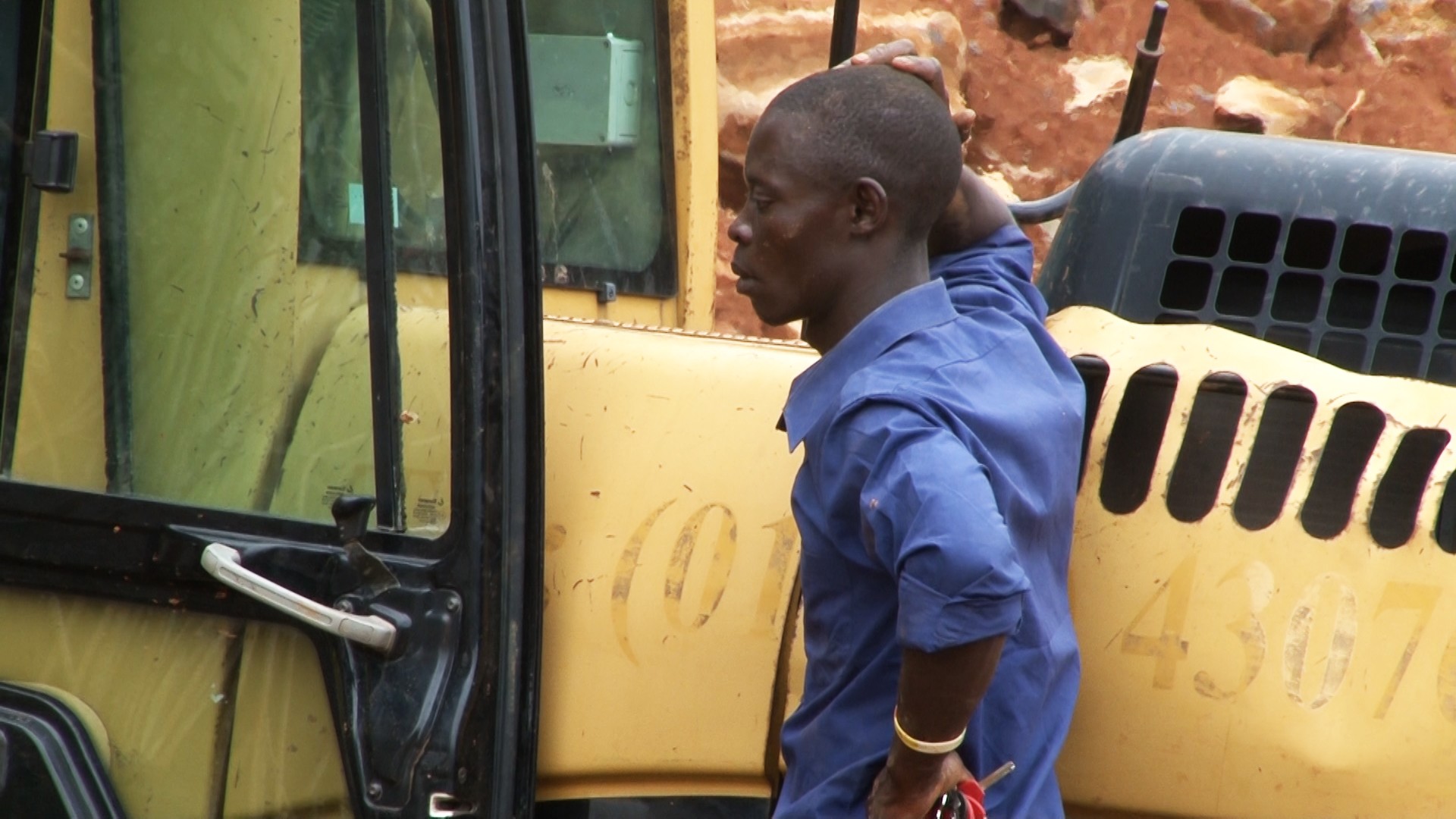
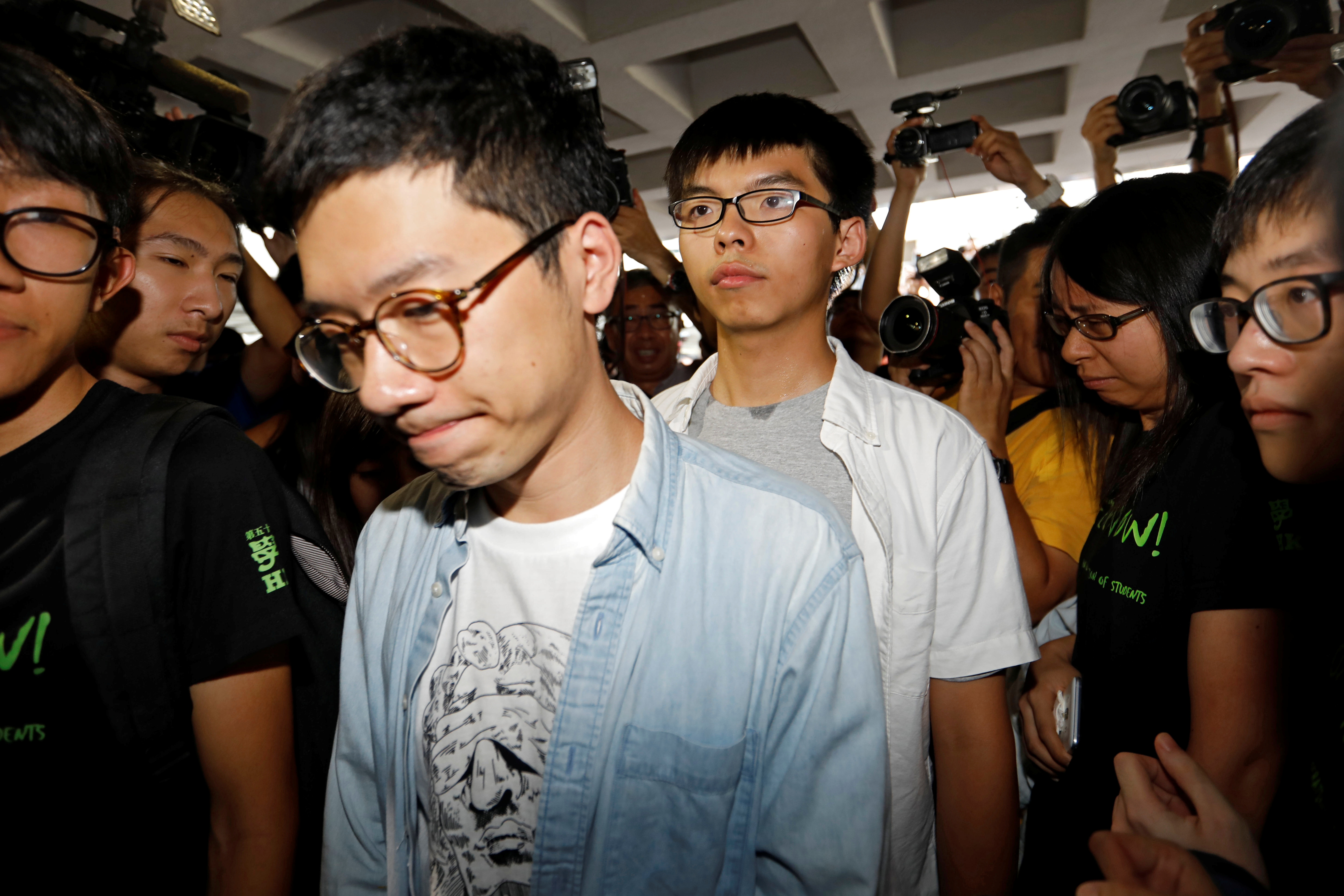 “You can lock up our bodies, but not our minds!”That was the defiant message from Hong Kong’s young pro-democracy activist Joshua Wong, when he and two other student leaders were jailed Thursday for their role in the 2014 “Umbrella Movement.”Rights groups immediately decried Wong’s arrest as a “vindictive” act of political persecution.Wong, 20, along with Nathan Law, 24, and Alex Chow, 26, had initially been given non-custodial sentences of community service last year for their role in a September 2014 demonstration that sparked wider pro-democracy protests in the semi-autonomous Chinese city-state.But Hong Kong’s pro-Beijing government took the unusual step of appealing those sentences. As a result, Wong was sentenced to six months jail Thursday, Law for eight, and Chow for seven, prompting their supporters in the courtroom to break into chants of “shame” and “political persecution” as the sentences were announced. The jail terms mean that the trio of young activists, among the loudest voices calling for democracy in Hong Kong, can’t run for political office in the next five years.Amnesty International’s Hong Kong director Mabel Au slammed the authorities’ decision to seek harsher sentences, describing it as “persecution.”“The relentless and vindictive pursuit of student leaders using vague charges smacks of political payback by the authorities,” she said.Hong Kong’s Justice Department insists there is “absolutely no basis to imply any political motive” on its part.Hong Kong enjoys much greater political freedoms than the Chinese mainland under the “one country, two systems” framework, designed to preserve the rule of law, freedom of speech and the right to protest in the former British colony until 2047. But there are growing concerns that Beijing is steadily eroding civic freedoms in the enclave.Immediately after his sentence was handed down, Wong took to Twitter with a stream of messages vowing to prevail in his fight for democracy. “Imprisoning us will not extinguish Hongkongers’ desire for universal suffrage,” he wrote. “We are stronger, more determined, and we will win.”— Tim HumeRead more: We spoke with Hong Kong’s youngest-ever lawmaker on his controversial first day
“You can lock up our bodies, but not our minds!”That was the defiant message from Hong Kong’s young pro-democracy activist Joshua Wong, when he and two other student leaders were jailed Thursday for their role in the 2014 “Umbrella Movement.”Rights groups immediately decried Wong’s arrest as a “vindictive” act of political persecution.Wong, 20, along with Nathan Law, 24, and Alex Chow, 26, had initially been given non-custodial sentences of community service last year for their role in a September 2014 demonstration that sparked wider pro-democracy protests in the semi-autonomous Chinese city-state.But Hong Kong’s pro-Beijing government took the unusual step of appealing those sentences. As a result, Wong was sentenced to six months jail Thursday, Law for eight, and Chow for seven, prompting their supporters in the courtroom to break into chants of “shame” and “political persecution” as the sentences were announced. The jail terms mean that the trio of young activists, among the loudest voices calling for democracy in Hong Kong, can’t run for political office in the next five years.Amnesty International’s Hong Kong director Mabel Au slammed the authorities’ decision to seek harsher sentences, describing it as “persecution.”“The relentless and vindictive pursuit of student leaders using vague charges smacks of political payback by the authorities,” she said.Hong Kong’s Justice Department insists there is “absolutely no basis to imply any political motive” on its part.Hong Kong enjoys much greater political freedoms than the Chinese mainland under the “one country, two systems” framework, designed to preserve the rule of law, freedom of speech and the right to protest in the former British colony until 2047. But there are growing concerns that Beijing is steadily eroding civic freedoms in the enclave.Immediately after his sentence was handed down, Wong took to Twitter with a stream of messages vowing to prevail in his fight for democracy. “Imprisoning us will not extinguish Hongkongers’ desire for universal suffrage,” he wrote. “We are stronger, more determined, and we will win.”— Tim HumeRead more: We spoke with Hong Kong’s youngest-ever lawmaker on his controversial first day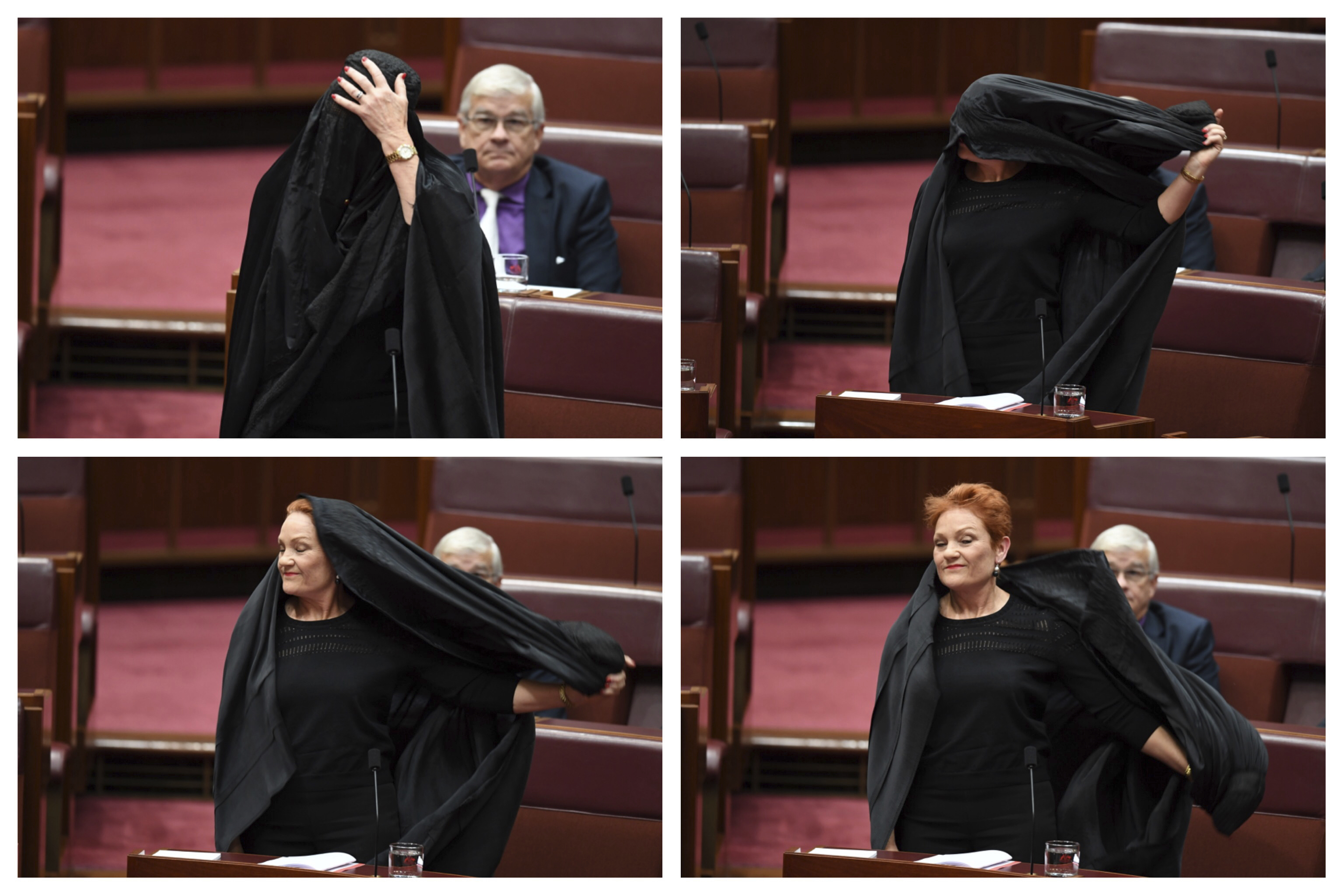 Audible gasps could be heard in Australian parliament Thursday, when controversial far-right politician Pauline Hanson entered the Senate chamber wearing a burqa. Hanson is not a practicing Muslim, but the leader of Australia’s anti-Muslim, anti-immigration One Nation party.Her stunt came on the back of a call from One Nation to ban the burqa in Australian government buildings. “I’m going to remove this,” Hanson told the Senate, stripping off the garment, “because it’s not what should belong in this Parliament.”Hanson was immediately lambasted by her fellow parliamentary members.Attorney-General George Brandis stood and harshly criticized Hanson for causing great offence to Australia’s Muslim community. “We have about half a million Australians in this country of the Islamic faith and the vast majority of them are law-abiding, good Australians,” the Liberal minister said. “To ridicule that community, to drive it into a corner, to mock its religious garments is an appalling thing to do.”Brandis’ comments were met with a standing ovation from the opposing Labor Party, marking a rare moment of political unity in a deeply divided parliament that’s been mired in scandal and firings in recent weeks.This isn’t the first time Hanson has invited outrage for her offensive barbs at Australia’s Muslim population. Last year she gave a speech saying Australia was being “swamped by Muslims.”— Maddison Connaughton
Audible gasps could be heard in Australian parliament Thursday, when controversial far-right politician Pauline Hanson entered the Senate chamber wearing a burqa. Hanson is not a practicing Muslim, but the leader of Australia’s anti-Muslim, anti-immigration One Nation party.Her stunt came on the back of a call from One Nation to ban the burqa in Australian government buildings. “I’m going to remove this,” Hanson told the Senate, stripping off the garment, “because it’s not what should belong in this Parliament.”Hanson was immediately lambasted by her fellow parliamentary members.Attorney-General George Brandis stood and harshly criticized Hanson for causing great offence to Australia’s Muslim community. “We have about half a million Australians in this country of the Islamic faith and the vast majority of them are law-abiding, good Australians,” the Liberal minister said. “To ridicule that community, to drive it into a corner, to mock its religious garments is an appalling thing to do.”Brandis’ comments were met with a standing ovation from the opposing Labor Party, marking a rare moment of political unity in a deeply divided parliament that’s been mired in scandal and firings in recent weeks.This isn’t the first time Hanson has invited outrage for her offensive barbs at Australia’s Muslim population. Last year she gave a speech saying Australia was being “swamped by Muslims.”— Maddison Connaughton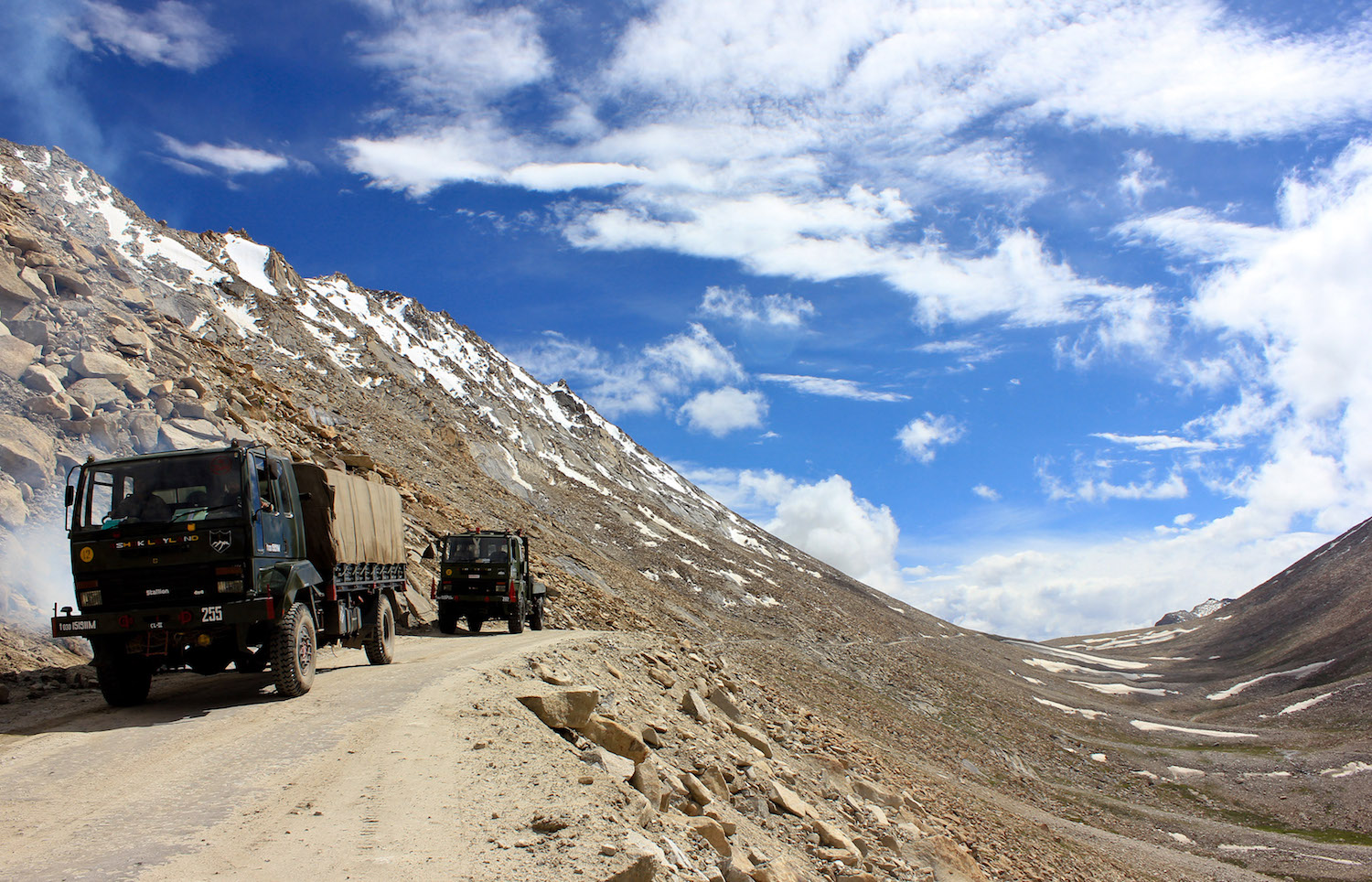 Chinese and Indian troops threw stones at each other Tuesday, in a rare outbreak of violence that risks escalating an already heated two-month border dispute between the two nuclear superpowers.The confrontation took place in the western Himalayas when Chinese troops attempted to enter Indian territory in Ladakh, near the Pangong lake. India claims the confrontation broke out after Chinese troops crossed into Indian territory carrying iron rod and stones. Beijing, unsurprisingly has a different perspective, insisting its troops remained inside Chinese territory, and calling on New Delhi to “withdraw all personnel and equipment from the Chinese soil.”Minor injuries were suffered on both sides.Since June, India and China have been openly toiling over the Doklam plateau, an oft-disputed and strategically important location where the borders of China, India and Bhutan meet. That standoff began when India sent troops to stop China from building a road that infringes on land claimed by Bhutan — a close ally of India.The latest altercation is among the most tense border disputes between the two countries since China defeated India in brief border war in 1962.Last month, Beijing warned India to withdraw from the Doklam area, promising it would be “taught a bitter lesson” and “suffer greater losses than in 1962” when the sides fought a brief border war which China won.On Tuesday, Indian Prime Minister Narendra Modi said “security is our top priority” adding that “India is capable and we are strong enough to overcome those who try to act against our country.”Last week India’s defense minister Arun Jaitley told parliament the country’s armed forces are “prepared to take on any eventuality.” In Beijing, a source inside the People’s Liberation Army (PLA) told the South China Morning Post “[The PLA] will deploy aircraft and strategic missiles to paralyze Indian mountain divisions stationed in the Himalayas on the border with China.”— David Gilbert
Chinese and Indian troops threw stones at each other Tuesday, in a rare outbreak of violence that risks escalating an already heated two-month border dispute between the two nuclear superpowers.The confrontation took place in the western Himalayas when Chinese troops attempted to enter Indian territory in Ladakh, near the Pangong lake. India claims the confrontation broke out after Chinese troops crossed into Indian territory carrying iron rod and stones. Beijing, unsurprisingly has a different perspective, insisting its troops remained inside Chinese territory, and calling on New Delhi to “withdraw all personnel and equipment from the Chinese soil.”Minor injuries were suffered on both sides.Since June, India and China have been openly toiling over the Doklam plateau, an oft-disputed and strategically important location where the borders of China, India and Bhutan meet. That standoff began when India sent troops to stop China from building a road that infringes on land claimed by Bhutan — a close ally of India.The latest altercation is among the most tense border disputes between the two countries since China defeated India in brief border war in 1962.Last month, Beijing warned India to withdraw from the Doklam area, promising it would be “taught a bitter lesson” and “suffer greater losses than in 1962” when the sides fought a brief border war which China won.On Tuesday, Indian Prime Minister Narendra Modi said “security is our top priority” adding that “India is capable and we are strong enough to overcome those who try to act against our country.”Last week India’s defense minister Arun Jaitley told parliament the country’s armed forces are “prepared to take on any eventuality.” In Beijing, a source inside the People’s Liberation Army (PLA) told the South China Morning Post “[The PLA] will deploy aircraft and strategic missiles to paralyze Indian mountain divisions stationed in the Himalayas on the border with China.”— David Gilbert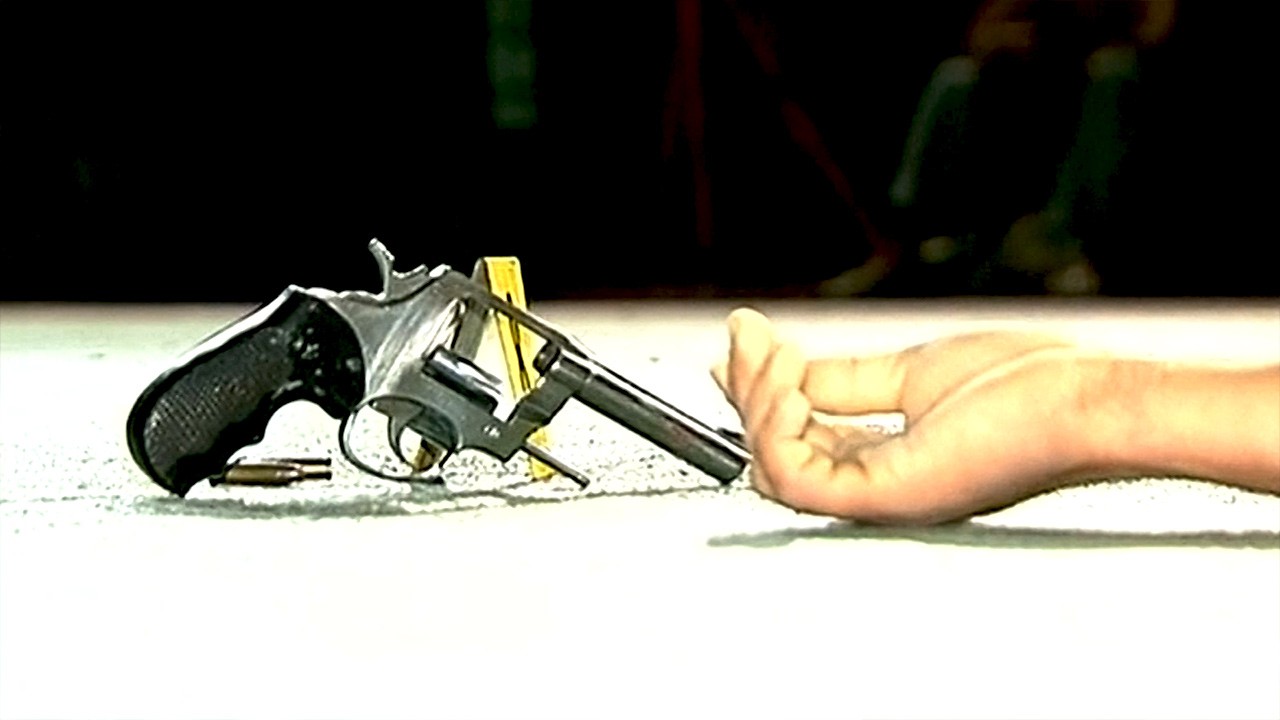 Thirty-two people were slaughtered during a 24-hour police operation that started Tuesday, marking the deadliest day in the Philippines ongoing drug crackdown. President Rodrigo Duterte hailed the costly exercise as “beautiful,” and urged his police force to keep the executions up.“That’s beautiful,” Duterte said, speaking in the capital, Manila. “We just kill another 32 every day, maybe we can reduce what’s wrong in this country.”Human rights monitors said that Duterte’s latest display bolstered the case for prosecuting him for crimes against humanity. Meanwhile, rights groups also warned that the ruthless tactics used in the Philippines may be spreading to nearby Indonesia.The 67 raids in the Bulacan province of the Philippines killed dozens and resulted in 109 arrests, and police seized 234 grams of methamphetamine, 786 grams of marijuana, assorted firearms, grenades and ammunition, police Senior Superintendent Romeo M. Caramat Jr. told a press conference on Wednesday.That means for every person killed, police seized about seven grams of meth and less than an ounce of marijuana.Police have already killed 4,351 “drug personalities” in the past year alone and arrested 96,703 more, following an average of over 170 anti-drug operations every day, according to official statistics from the Philippine National Police.— Greg Walters Read more: Duterte brags about “beautiful” drug war after deadliest day yet
Thirty-two people were slaughtered during a 24-hour police operation that started Tuesday, marking the deadliest day in the Philippines ongoing drug crackdown. President Rodrigo Duterte hailed the costly exercise as “beautiful,” and urged his police force to keep the executions up.“That’s beautiful,” Duterte said, speaking in the capital, Manila. “We just kill another 32 every day, maybe we can reduce what’s wrong in this country.”Human rights monitors said that Duterte’s latest display bolstered the case for prosecuting him for crimes against humanity. Meanwhile, rights groups also warned that the ruthless tactics used in the Philippines may be spreading to nearby Indonesia.The 67 raids in the Bulacan province of the Philippines killed dozens and resulted in 109 arrests, and police seized 234 grams of methamphetamine, 786 grams of marijuana, assorted firearms, grenades and ammunition, police Senior Superintendent Romeo M. Caramat Jr. told a press conference on Wednesday.That means for every person killed, police seized about seven grams of meth and less than an ounce of marijuana.Police have already killed 4,351 “drug personalities” in the past year alone and arrested 96,703 more, following an average of over 170 anti-drug operations every day, according to official statistics from the Philippine National Police.— Greg Walters Read more: Duterte brags about “beautiful” drug war after deadliest day yet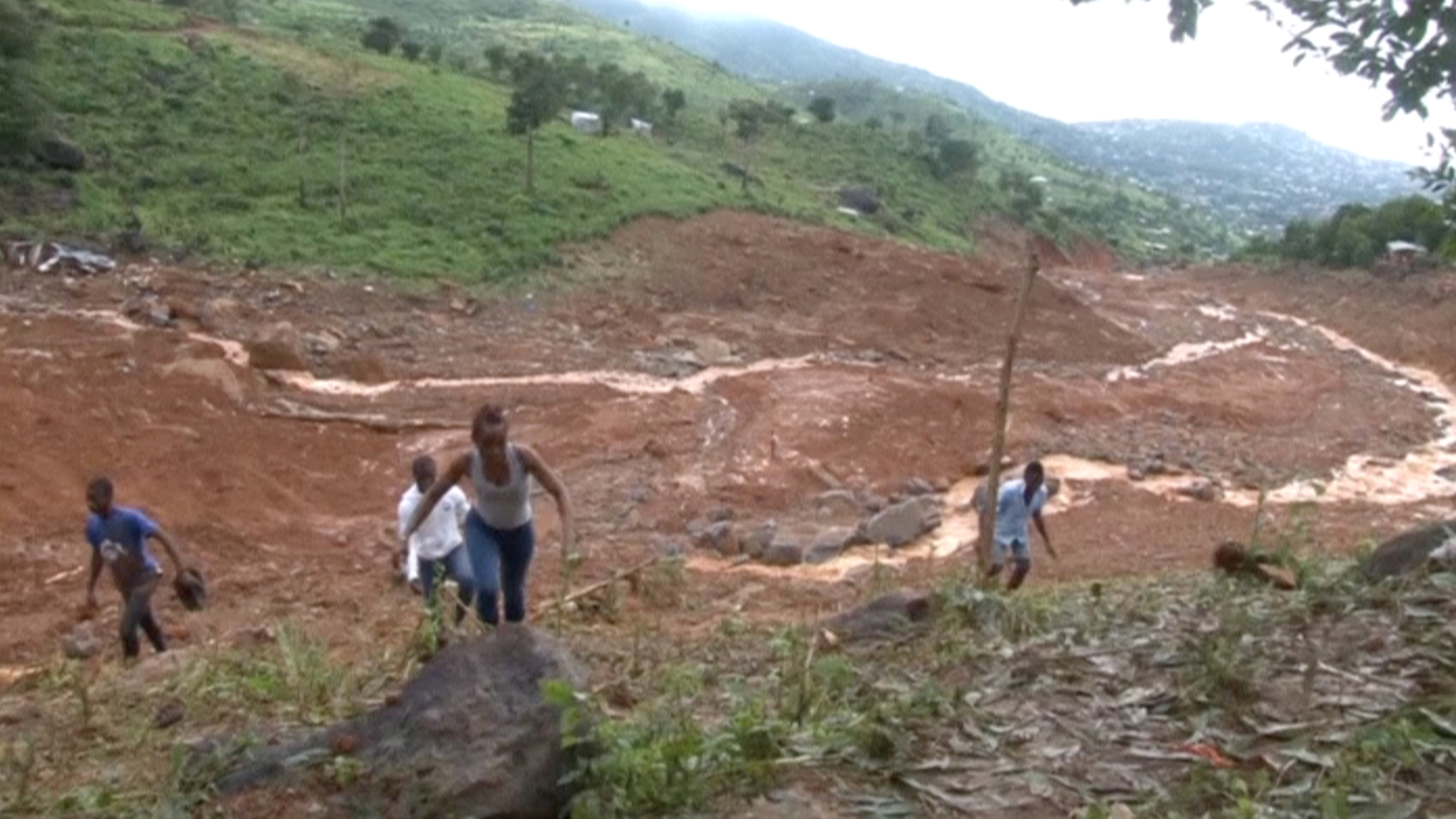 Up to 1,000 people are dead or missing after a devastating mudslide in the capital of Sierra Leone Freetown, with thousands more left without a home. The government called for seven days of mourning and pleaded for urgent international help saying it has been “overwhelmed” by the tragedy.If the government does not act quickly, aid agencies warned, things could get worse.The mudslide hit Freetown Monday, wiping away hundreds of houses and burying victims as they slept. The government confirmedto BBC Wednesday that the official death toll had almost reached 400, but warned that at least 600 more were still missing. The Red Cross estimates that at least 3,000 people have been left homeless.The hilltop area of Regent in Freetown was worst hit when heavier-than-normal rains resulted in part of the Sugar Loaf mountain collapsing. The natural catastrophe was exacerbated by an unprepared response, which had received no warning by the country’s meteorological department of such risks ahead of time.Aid agencies have been scrambling to help those affected and are struggling to access hard-to-reach mountain areas. The situation could grow worse still in the coming days, continuing rainfall increases the risk of a second landslide. Sierra Leone is not yet halfway through its rainy season.“We have the mountains and very steep hillsides. [It’s very hard to] access these areas, where it’s muddy, it’s slippery — there’s a risk of a second landslide,” Linnea Van Wagenen, working for the UN in Sierra Leone, said. “We’re not sure how this massive landslide has affected the ground around it.”With the city’s drainage system already overwhelmed by torrential rain, there are large bodies of stagnant water in many areas of Freetown. “The spread of diseases such as cholera, typhoid and diarrhea following flooding is also a huge concern,” Alex Carle, director of international programs at the British Red Cross, told the Guardian.— David Gilbert
Up to 1,000 people are dead or missing after a devastating mudslide in the capital of Sierra Leone Freetown, with thousands more left without a home. The government called for seven days of mourning and pleaded for urgent international help saying it has been “overwhelmed” by the tragedy.If the government does not act quickly, aid agencies warned, things could get worse.The mudslide hit Freetown Monday, wiping away hundreds of houses and burying victims as they slept. The government confirmedto BBC Wednesday that the official death toll had almost reached 400, but warned that at least 600 more were still missing. The Red Cross estimates that at least 3,000 people have been left homeless.The hilltop area of Regent in Freetown was worst hit when heavier-than-normal rains resulted in part of the Sugar Loaf mountain collapsing. The natural catastrophe was exacerbated by an unprepared response, which had received no warning by the country’s meteorological department of such risks ahead of time.Aid agencies have been scrambling to help those affected and are struggling to access hard-to-reach mountain areas. The situation could grow worse still in the coming days, continuing rainfall increases the risk of a second landslide. Sierra Leone is not yet halfway through its rainy season.“We have the mountains and very steep hillsides. [It’s very hard to] access these areas, where it’s muddy, it’s slippery — there’s a risk of a second landslide,” Linnea Van Wagenen, working for the UN in Sierra Leone, said. “We’re not sure how this massive landslide has affected the ground around it.”With the city’s drainage system already overwhelmed by torrential rain, there are large bodies of stagnant water in many areas of Freetown. “The spread of diseases such as cholera, typhoid and diarrhea following flooding is also a huge concern,” Alex Carle, director of international programs at the British Red Cross, told the Guardian.— David Gilbert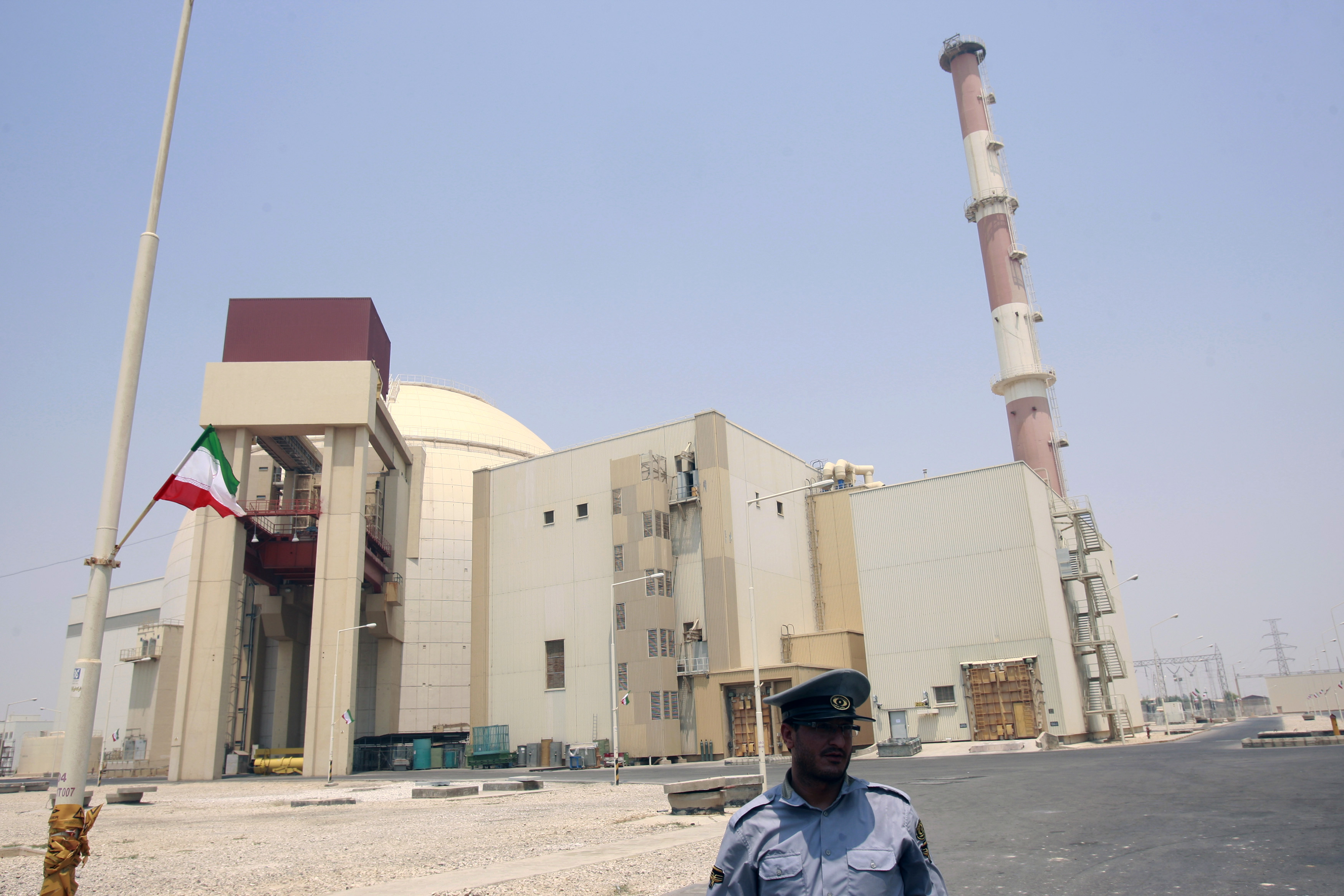 Iran could reconstitute its nuclear program within “hours” if the U.S. persists in pressing sanctions against the country, Iranian President Hassan Rouhani said in televised remarks Tuesday. Rouhani’s charged warning comes days after the U.S. approved a fresh round of economic penalties that Iran has described as a violation of its 2015 nuclear deal.Iran’s nuclear operation would quickly advance far beyond the level it achieved when the country agreed to curtail the program in 2015, Rouhani said in an address broadcast by state-backed Press TV. That year Tehran struck its landmark deal with President Obama to limit the enrichment and stockpiling of uranium in exchange for a rollback of economic sanctions.Iranian leaders have said the new round of U.S. sanctions signed by Donald Trump in early August in response to the country’s missile program violate the agreement, and the country’s supreme leader Ayatollah Ali Khamenei has slammed the U.S. government as “shameless” for enacting them.“The new U.S. administration officials should know that the failed experience of threats and sanctions forced their predecessors to come to the negotiating table,” Rouhani said. “If they prefer to return to those times, Iran will definitely return to a situation much more advanced than the start of the [nuclear] negotiations, not within months and weeks, but in a matter of hours and days.”Trump has made no secret of his disdain for the “worst deal ever” with Iran, which he railed against during his presidential campaign. Yet his administration has maintained the pact, officially affirming, in both April and July, the Iranian side’s compliance with the terms. Media reports suggest Trump himself has argued against doing so and said he wouldn’t keep doing it indefinitely. Trump’s own Secretary of State, Rex Tillerson, has acknowledged openly that he and the president disagree on the issue.Rouhani’s comments came a few hours before the U.S. military accused Iran of flying a QOM-1 drone in an “unsafe and unprofessional manner” within 1,000 feet of the American aircraft carrier the USS Nimitz in the Persian Gulf on Sunday, in just the most recent instance of near-confrontation between the two militaries in the region.— Greg Walters
Iran could reconstitute its nuclear program within “hours” if the U.S. persists in pressing sanctions against the country, Iranian President Hassan Rouhani said in televised remarks Tuesday. Rouhani’s charged warning comes days after the U.S. approved a fresh round of economic penalties that Iran has described as a violation of its 2015 nuclear deal.Iran’s nuclear operation would quickly advance far beyond the level it achieved when the country agreed to curtail the program in 2015, Rouhani said in an address broadcast by state-backed Press TV. That year Tehran struck its landmark deal with President Obama to limit the enrichment and stockpiling of uranium in exchange for a rollback of economic sanctions.Iranian leaders have said the new round of U.S. sanctions signed by Donald Trump in early August in response to the country’s missile program violate the agreement, and the country’s supreme leader Ayatollah Ali Khamenei has slammed the U.S. government as “shameless” for enacting them.“The new U.S. administration officials should know that the failed experience of threats and sanctions forced their predecessors to come to the negotiating table,” Rouhani said. “If they prefer to return to those times, Iran will definitely return to a situation much more advanced than the start of the [nuclear] negotiations, not within months and weeks, but in a matter of hours and days.”Trump has made no secret of his disdain for the “worst deal ever” with Iran, which he railed against during his presidential campaign. Yet his administration has maintained the pact, officially affirming, in both April and July, the Iranian side’s compliance with the terms. Media reports suggest Trump himself has argued against doing so and said he wouldn’t keep doing it indefinitely. Trump’s own Secretary of State, Rex Tillerson, has acknowledged openly that he and the president disagree on the issue.Rouhani’s comments came a few hours before the U.S. military accused Iran of flying a QOM-1 drone in an “unsafe and unprofessional manner” within 1,000 feet of the American aircraft carrier the USS Nimitz in the Persian Gulf on Sunday, in just the most recent instance of near-confrontation between the two militaries in the region.— Greg Walters 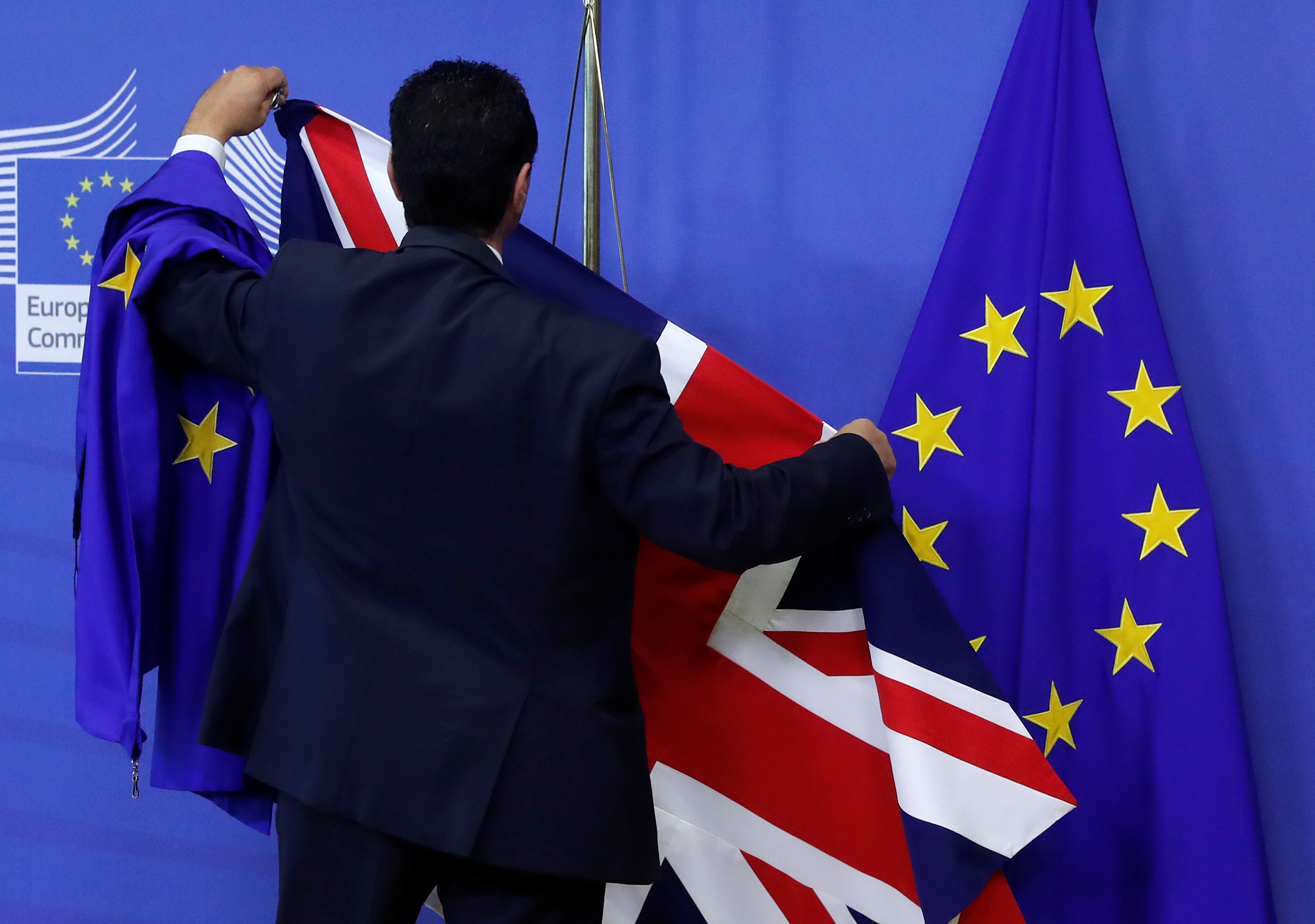 The latest Brexit plan from the U.K. government has been labelled “deluded” by one European Commissioner and hammered by others, as Theresa May’s government faces mounting accusations that it is woefully unprepared to handle the critical exit talks.Two months into negotiations and 14 months after the Brexit vote, the U.K. government has finally published its first detailed policy document, outlining a proposal to temporarily stay within the EU customs union while it negotiates international trade deals. And the plan is already being ridiculed by all sides.Brussels has brushed it off as wishful thinking, and “leave” voters have accused the majority Conservative government of selling out their base by seeking a softer Brexit.— David Gilbert Read more: Everyone thinks Theresa May’s new Brexit plan is a mess
The latest Brexit plan from the U.K. government has been labelled “deluded” by one European Commissioner and hammered by others, as Theresa May’s government faces mounting accusations that it is woefully unprepared to handle the critical exit talks.Two months into negotiations and 14 months after the Brexit vote, the U.K. government has finally published its first detailed policy document, outlining a proposal to temporarily stay within the EU customs union while it negotiates international trade deals. And the plan is already being ridiculed by all sides.Brussels has brushed it off as wishful thinking, and “leave” voters have accused the majority Conservative government of selling out their base by seeking a softer Brexit.— David Gilbert Read more: Everyone thinks Theresa May’s new Brexit plan is a mess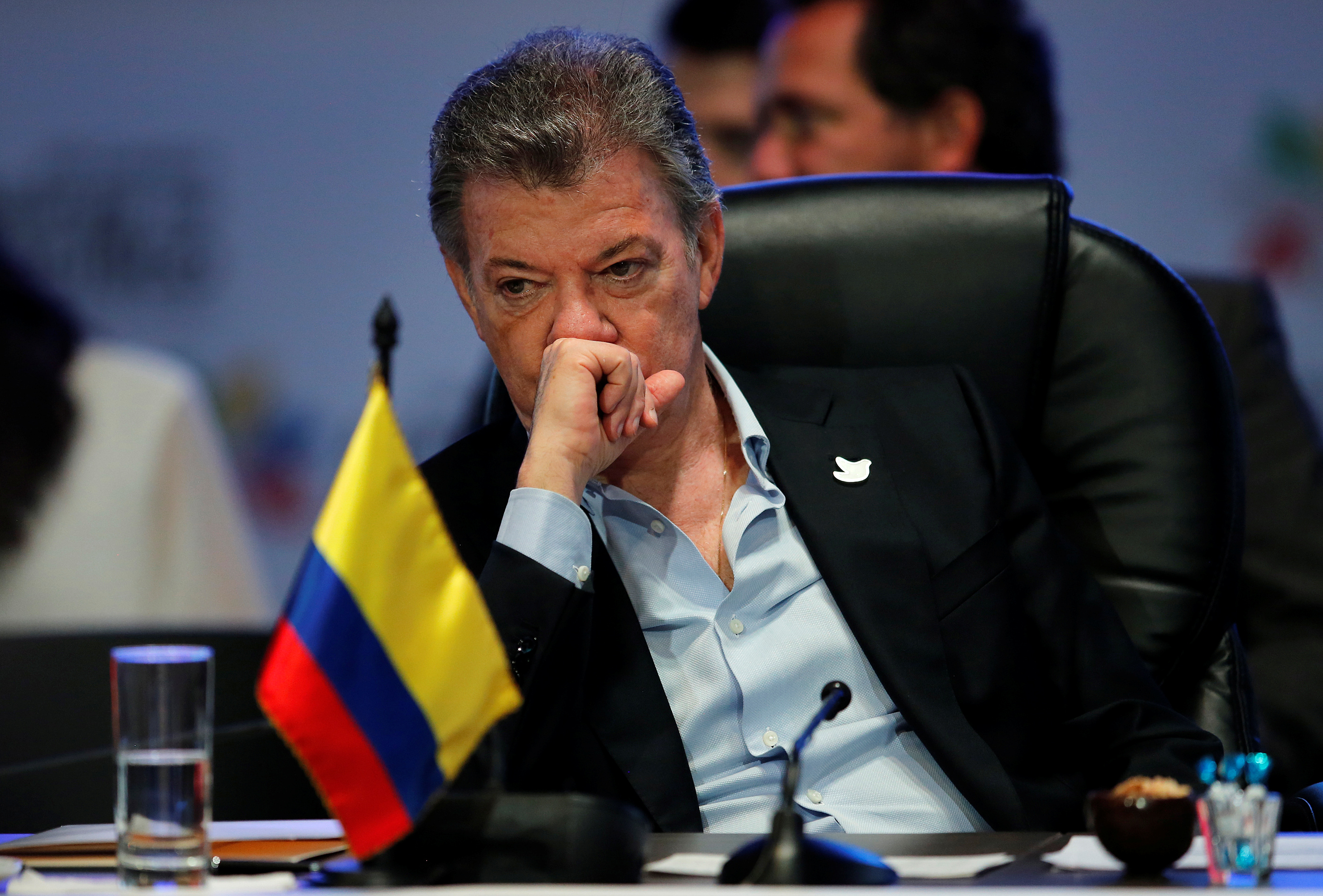 Colombian President Juan Manuel Santos offered a friendly word of advice to the U.S. Sunday evening: Don’t even think about a military intervention in Venezuela.Santos made his stance clear at a news conference alongside U.S. Vice President Mike Pence, who was visiting Cartagena on the first stop of a four-country Latin American trip.Santos, in a clear rebuke to President Donald Trump’s off-handed military threat to the beleaguered country Friday, said that while Colombia and its neighbors were committed to finding a solution to the months-long political crisis in Venezuela, a U.S.-led military intervention “shouldn’t even be considered.”“The Latin American continent, every country in Latin America, would not favor any form of military intervention and that is why we are saying we are intent on looking into other measures,” he said.“A transition in the Venezuelan regime toward democracy must be a peaceful transition. It must be hopefully a democratic transition. And it must be done quickly.”Trump dramatically ratcheted up tensions with Venezuela when he said Friday that he had not ruled out military action to resolve the crisis, saying it was something Washington “certainly could pursue.” U.S. interventions have so far been limited to economic sanctions and coordinating international efforts to isolate the socialist regime.After meeting Venezuelan families in Cartagena Sunday who had fled the crisis in their homeland, Pence declared that the U.S. would not stand by as Venezuela “crumbles.”The crisis in Venezuela, sparked by the government installing a powerful new legislature in a move widely seen as a power grab by besieged president Nicolás Maduro, is expected to dominate discussions during Pence’s six-day visit to Colombia, Argentina, Chile, and Panama. The U.S. vice president said Sunday that a failed state in Venezuela would endanger the continent, but that Washington preferred a “peaceable” solution to the crisis.— Tim Hume
Colombian President Juan Manuel Santos offered a friendly word of advice to the U.S. Sunday evening: Don’t even think about a military intervention in Venezuela.Santos made his stance clear at a news conference alongside U.S. Vice President Mike Pence, who was visiting Cartagena on the first stop of a four-country Latin American trip.Santos, in a clear rebuke to President Donald Trump’s off-handed military threat to the beleaguered country Friday, said that while Colombia and its neighbors were committed to finding a solution to the months-long political crisis in Venezuela, a U.S.-led military intervention “shouldn’t even be considered.”“The Latin American continent, every country in Latin America, would not favor any form of military intervention and that is why we are saying we are intent on looking into other measures,” he said.“A transition in the Venezuelan regime toward democracy must be a peaceful transition. It must be hopefully a democratic transition. And it must be done quickly.”Trump dramatically ratcheted up tensions with Venezuela when he said Friday that he had not ruled out military action to resolve the crisis, saying it was something Washington “certainly could pursue.” U.S. interventions have so far been limited to economic sanctions and coordinating international efforts to isolate the socialist regime.After meeting Venezuelan families in Cartagena Sunday who had fled the crisis in their homeland, Pence declared that the U.S. would not stand by as Venezuela “crumbles.”The crisis in Venezuela, sparked by the government installing a powerful new legislature in a move widely seen as a power grab by besieged president Nicolás Maduro, is expected to dominate discussions during Pence’s six-day visit to Colombia, Argentina, Chile, and Panama. The U.S. vice president said Sunday that a failed state in Venezuela would endanger the continent, but that Washington preferred a “peaceable” solution to the crisis.— Tim Hume 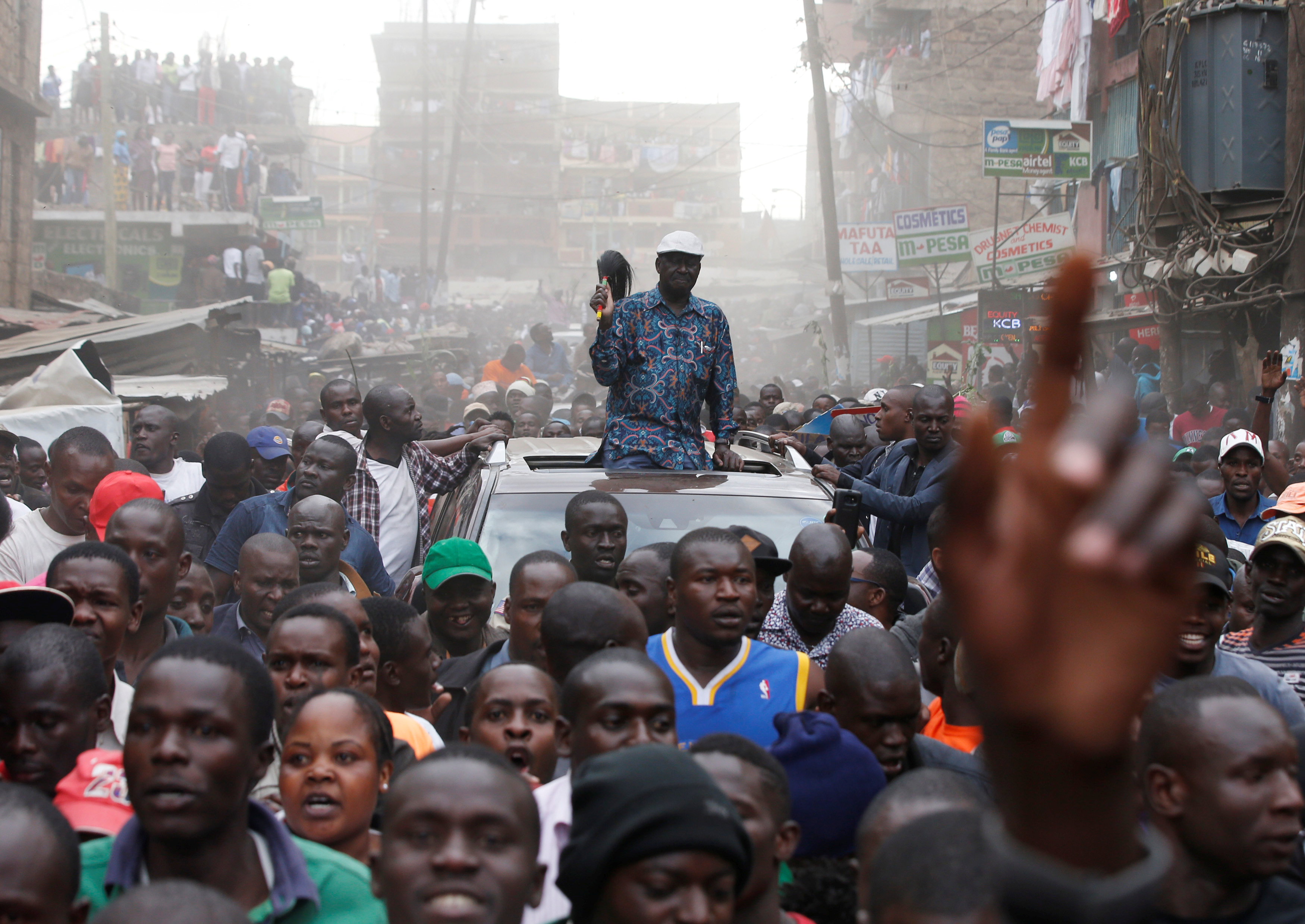 NAIROBI, Kenya — Kenyan opposition leader Raila Odinga was greeted in the city’s Kibera slum Sunday afternoon with roars of “Baba” (Papa) and “No Raila, No Peace,” after a weekend of violent street demonstrations that left at least 24 dead and 100 more injured. Surrounded by thousands of supporters, Odinga called on his base to await further marching orders in their boycott against what his campaign calls “sham presidential results.”The embattled four-time presidential candidate doubled down on his party’s claims of election fraud and struck out at newly re-elected President Uhuru Kenyatta’s government, further stoking fears that the violence that engulfed Nairobi’s largest slums over the weekend will spread beyond Odinga strongholds.“People are willing to die” in the demonstrations, said Morris Onyango, 43, in Kibera. “We believe the tallying was rigged.”— Julia Steers Read more: “People are willing to die”: Kenya’s opposition pushes election boycott
NAIROBI, Kenya — Kenyan opposition leader Raila Odinga was greeted in the city’s Kibera slum Sunday afternoon with roars of “Baba” (Papa) and “No Raila, No Peace,” after a weekend of violent street demonstrations that left at least 24 dead and 100 more injured. Surrounded by thousands of supporters, Odinga called on his base to await further marching orders in their boycott against what his campaign calls “sham presidential results.”The embattled four-time presidential candidate doubled down on his party’s claims of election fraud and struck out at newly re-elected President Uhuru Kenyatta’s government, further stoking fears that the violence that engulfed Nairobi’s largest slums over the weekend will spread beyond Odinga strongholds.“People are willing to die” in the demonstrations, said Morris Onyango, 43, in Kibera. “We believe the tallying was rigged.”— Julia Steers Read more: “People are willing to die”: Kenya’s opposition pushes election boycott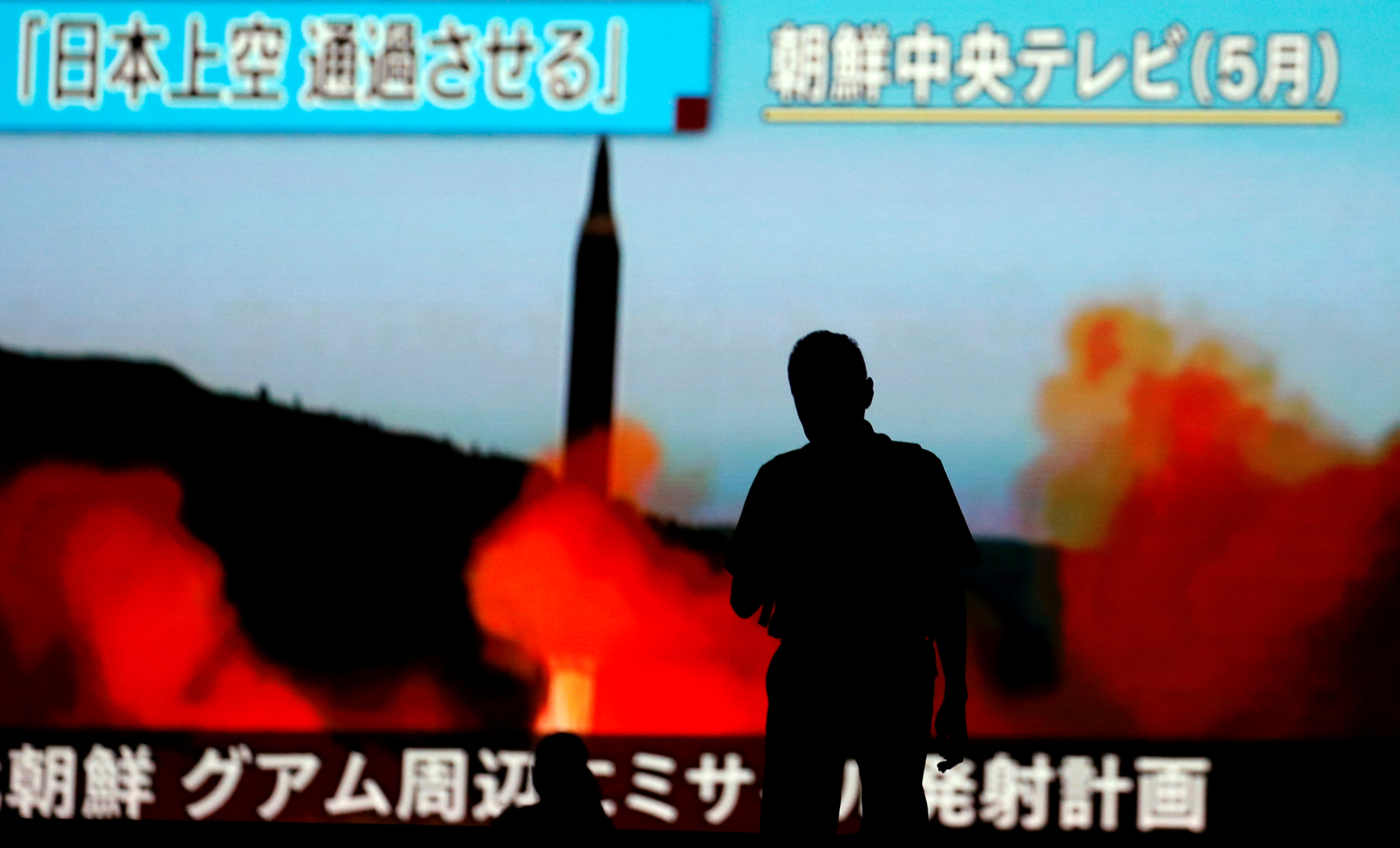 North Korea owes its surprisingly successful string of recent missile launches to powerful engines acquired from either Russia or Ukraine, according to an expert analysis released Monday.The isolated regime reversed a series of failed missile tests after turning to a powerful liquid-propellent engine in 2016 that was “clearly” based on the Soviet RD-250 model and modified to fit North Korean rockets, according to the report on the think tank’s website by Michael Elleman, a missile expert at the International Institute for Strategic Studies.A review of the engine’s design specifications reveals that “the RD-250 is the only match,” Elleman wrote.While the exact source of the powerful engines remains uncertain, they could have have been purchased on the black market and smuggled into North Korea by train, likely within the past two years, Elleman concluded in the report.Hundreds of RD-250 engines, each measuring less than 2 meters tall and 1 meter wide, are stored in Russia and Ukraine and “a few dozen” could have been sold to international arms smugglers “by a small number of disgruntled employees or underpaid guards,” Elleman continued.U.S. government investigators tracing the origin of the engines have “focused their inquiries” on a missile factory in Dnipro in eastern Ukraine, the New York Times reported Monday.The Ukrainian plant at the center of the controversy, Yuzhmash, issued a denial Monday, calling Elleman “incompetent” and the Times report “provocative.”“Yuzhmash has never before and does not have anything to do with North Korean missile programs of a space or defense nature,” the company said.The Ukrainian government also weighed in Monday, denying any involvement to North Korea’s missile program. Oleksandr Turchynov, Secretary of the Ukrainian Security and Defense Council, said that Ukraine “has never supplied rocket engines or any kind of missile technology to North Korea.”After a week of tit-for-tat threats between Donald Trump and the North Korean leadership, the country that shares the Korean Peninsula with Kim Jong Un’s erratic regime issued a plea for a peaceful, diplomatic resolution to the crisis.South Korean President Moon Jae-in appealed to the U.S. to avoid war with North Korea during a meeting Monday with U.S. Gen. Joseph Dunford, chairman of the Joint Chiefs of Staff, in Seoul.Dunford assured the South Korean president the U.S. is prioritizing diplomacy but also preparing military options in case sanctions against the North fail.— Greg Walters
North Korea owes its surprisingly successful string of recent missile launches to powerful engines acquired from either Russia or Ukraine, according to an expert analysis released Monday.The isolated regime reversed a series of failed missile tests after turning to a powerful liquid-propellent engine in 2016 that was “clearly” based on the Soviet RD-250 model and modified to fit North Korean rockets, according to the report on the think tank’s website by Michael Elleman, a missile expert at the International Institute for Strategic Studies.A review of the engine’s design specifications reveals that “the RD-250 is the only match,” Elleman wrote.While the exact source of the powerful engines remains uncertain, they could have have been purchased on the black market and smuggled into North Korea by train, likely within the past two years, Elleman concluded in the report.Hundreds of RD-250 engines, each measuring less than 2 meters tall and 1 meter wide, are stored in Russia and Ukraine and “a few dozen” could have been sold to international arms smugglers “by a small number of disgruntled employees or underpaid guards,” Elleman continued.U.S. government investigators tracing the origin of the engines have “focused their inquiries” on a missile factory in Dnipro in eastern Ukraine, the New York Times reported Monday.The Ukrainian plant at the center of the controversy, Yuzhmash, issued a denial Monday, calling Elleman “incompetent” and the Times report “provocative.”“Yuzhmash has never before and does not have anything to do with North Korean missile programs of a space or defense nature,” the company said.The Ukrainian government also weighed in Monday, denying any involvement to North Korea’s missile program. Oleksandr Turchynov, Secretary of the Ukrainian Security and Defense Council, said that Ukraine “has never supplied rocket engines or any kind of missile technology to North Korea.”After a week of tit-for-tat threats between Donald Trump and the North Korean leadership, the country that shares the Korean Peninsula with Kim Jong Un’s erratic regime issued a plea for a peaceful, diplomatic resolution to the crisis.South Korean President Moon Jae-in appealed to the U.S. to avoid war with North Korea during a meeting Monday with U.S. Gen. Joseph Dunford, chairman of the Joint Chiefs of Staff, in Seoul.Dunford assured the South Korean president the U.S. is prioritizing diplomacy but also preparing military options in case sanctions against the North fail.— Greg Walters 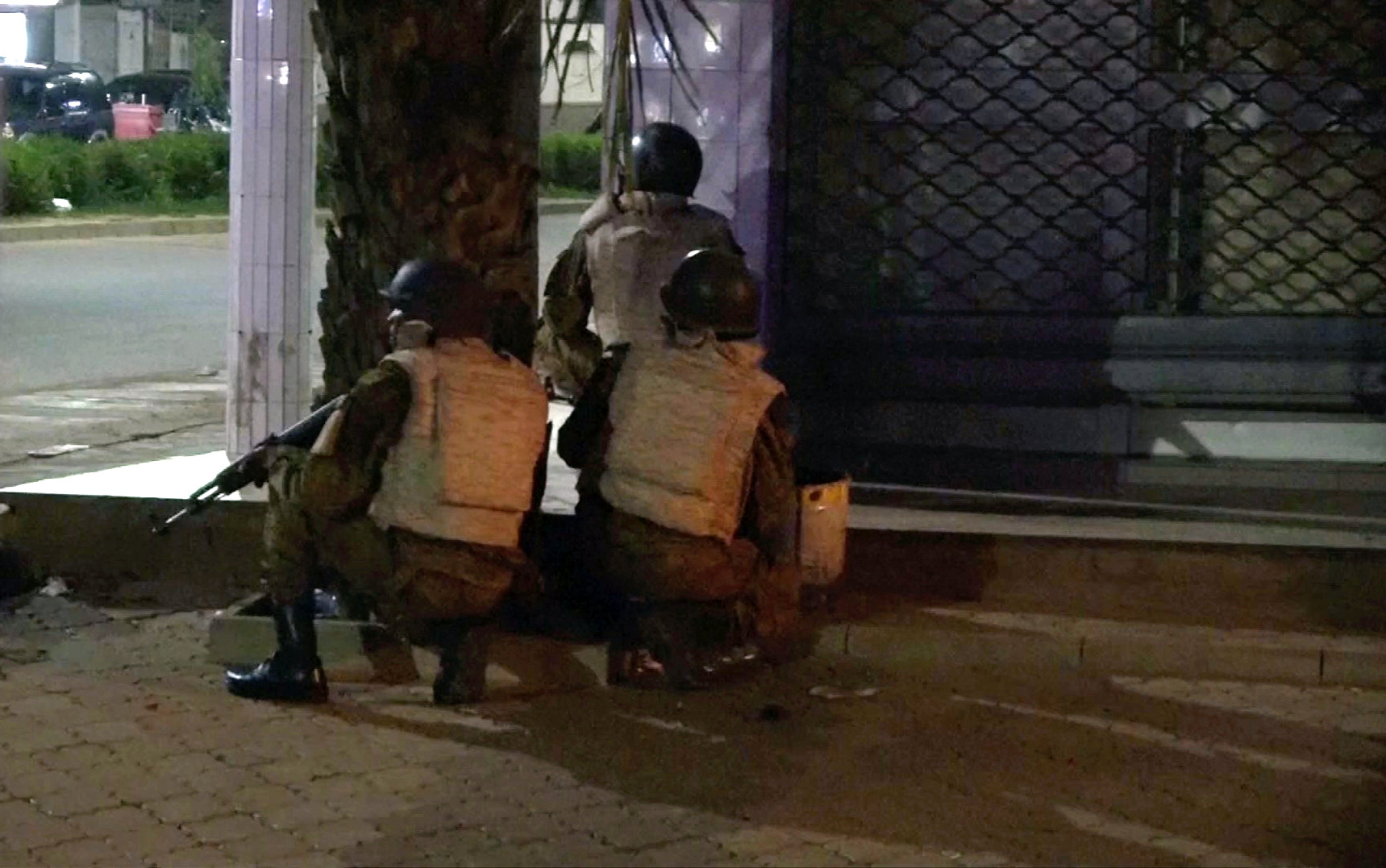 Eighteen people were killed when gunmen on motorcycles stormed a restaurant and took hostages in an eight-hour siege in Burkina Faso’s capital Ouagadougou Sunday night. The two gunmen were killed in a prolonged gun battle with security forces.No group has claimed responsibility for the attack. But suspicion has fallen on the local al Qaeda affiliate behind a surge of violence in the region in recent years, despite an ongoing French-led counterterrorism mission in the Sahel since 2013. It’s the second major terror attack to jolt the West African nation in two years.The attack began at about 9 p.m. local time Sunday (5 p.m. ET), when gunmen raided Aziz Istanbul, a Turkish restaurant in central Ouagadougou that’s a popular destination for foreigners. Security forces responded with a counterassault, resulting in a gun battle that eventually ended at about 5 a.m. Monday (1 a.m. ET) after the two attackers were killed, the government said.One Turkish citizen was confirmed among the victims, but the nationalities of the others are yet to be disclosed.Until recently, Burkina Faso had largely avoided the jihadi violence that has plagued Mali, its neighbor to the north. But a recent escalation in jihadi operations has seen it struck with a number of attacks in the past two years, as al Qaeda-affiliated terrorists have demonstrated their ability to strike in the region seemingly at will.— Tim HumeRead more: 20 dead in terrorist attack on Turkish restaurant in the SahelSee earlier updates: Week of August 01, Week of August 07.
Eighteen people were killed when gunmen on motorcycles stormed a restaurant and took hostages in an eight-hour siege in Burkina Faso’s capital Ouagadougou Sunday night. The two gunmen were killed in a prolonged gun battle with security forces.No group has claimed responsibility for the attack. But suspicion has fallen on the local al Qaeda affiliate behind a surge of violence in the region in recent years, despite an ongoing French-led counterterrorism mission in the Sahel since 2013. It’s the second major terror attack to jolt the West African nation in two years.The attack began at about 9 p.m. local time Sunday (5 p.m. ET), when gunmen raided Aziz Istanbul, a Turkish restaurant in central Ouagadougou that’s a popular destination for foreigners. Security forces responded with a counterassault, resulting in a gun battle that eventually ended at about 5 a.m. Monday (1 a.m. ET) after the two attackers were killed, the government said.One Turkish citizen was confirmed among the victims, but the nationalities of the others are yet to be disclosed.Until recently, Burkina Faso had largely avoided the jihadi violence that has plagued Mali, its neighbor to the north. But a recent escalation in jihadi operations has seen it struck with a number of attacks in the past two years, as al Qaeda-affiliated terrorists have demonstrated their ability to strike in the region seemingly at will.— Tim HumeRead more: 20 dead in terrorist attack on Turkish restaurant in the SahelSee earlier updates: Week of August 01, Week of August 07.
Finland — August 18, 2017
Stabbing attack leaves 2 dead and 8 wounded
Advertisement
Nepal — August 18, 2017
Monsoon floods devastate 16 million people in South Asia

16
million people
Advertisement
“This is fast becoming one of the most serious humanitarian crises this region has seen in many years,” said Martin Faller, deputy Asia director for the International Federation of Red Cross and Red Crescent Societies.Flooding has already killed at least 128 people in Nepal, and 33 people are still missing, according to the Red Cross. In Bangladesh, the flooding is likely to get worse as swollen rivers from India pour into the country’s low-lying and densely populated areas, the Red Cross said.“The immediate situation is extremely desperate,” Save The Children director Mark Pierce said. “Last year’s floods hit Bangladesh pretty hard; however, it looks as though this year’s are already significantly worse.”Simulations of future climate change suggest monsoon rains and associated flooding will intensify as the planet continues to heat up. 2016 surpassed 2015 as the warmest year in 137 years of record-keeping, according to a report released this month by the American Meteorological Society.— Greg Walters“The immediate situation is extremely desperate.”
Spain — August 18, 2017
Teenage driverbehind Barcelona van attack killed by police, local media reports

Advertisement
Sierra Leone — August 17, 2017
Looking for survivors of Sierra Leone’s deadly mudslide
Advertisement

China — August 17, 2017
Hong Kong jails pro-democracy activists for 2014 protests

Advertisement
Australia — August 17, 2017
Anti-Muslim Australian politician wears burqa in offensive political stunt

Advertisement
India — August 16, 2017
Chinese and Indian soldiers hurl rocks at each other in the Himalayas

Advertisement
Philippines — August 16, 2017
Duterte brags about “beautiful” drug war after deadliest day yet

Advertisement
Sierra Leone —August 16, 2017
At least 1,000 dead or missing following Sierra Leone mudslide

Advertisement
Advertisement
Iran — August 15, 2017
Iran warns U.S.: We could be back in the nuclear game in “hours”

Advertisement
U.K. — August 15, 2017
Everyone thinks Theresa May’s new Brexit plan is a mess

Advertisement
Colombia — August 14, 2017
Colombia to U.S.: Forget about military action in Venezuela

Advertisement
Kenya — August 14, 2017
Kenya’s opposition pushes election boycott

Advertisement
North Korea — August 14, 2017
North Korea’s missile program can thank Russia and Ukraine tech, report says

Advertisement
Burkina Faso — August 14, 2017
20 dead in terrorist attack on Turkish restaurant in the Sahel
